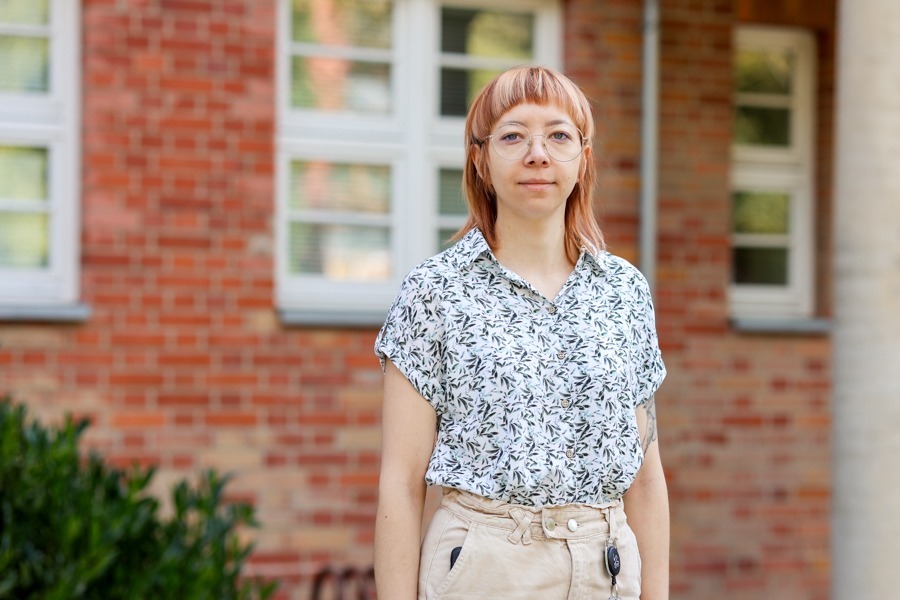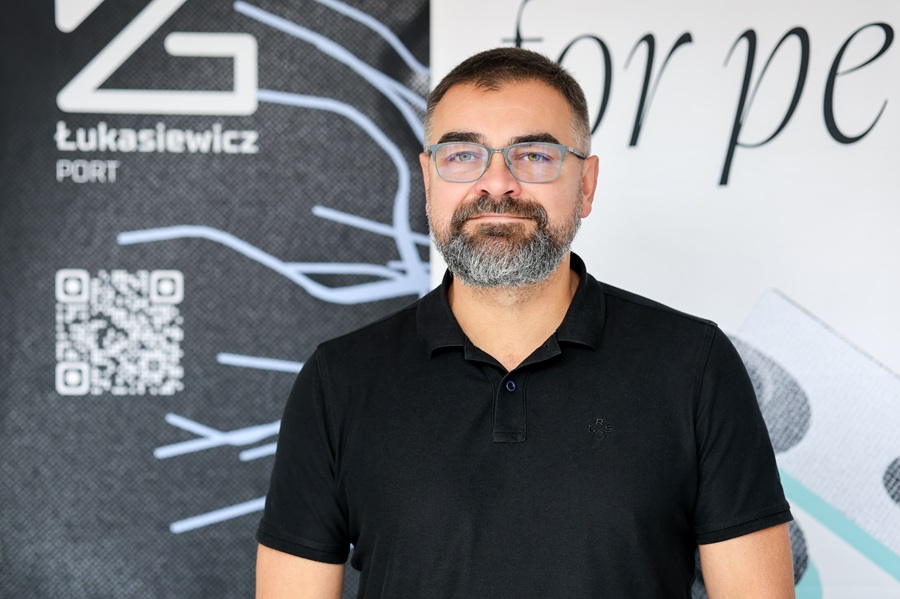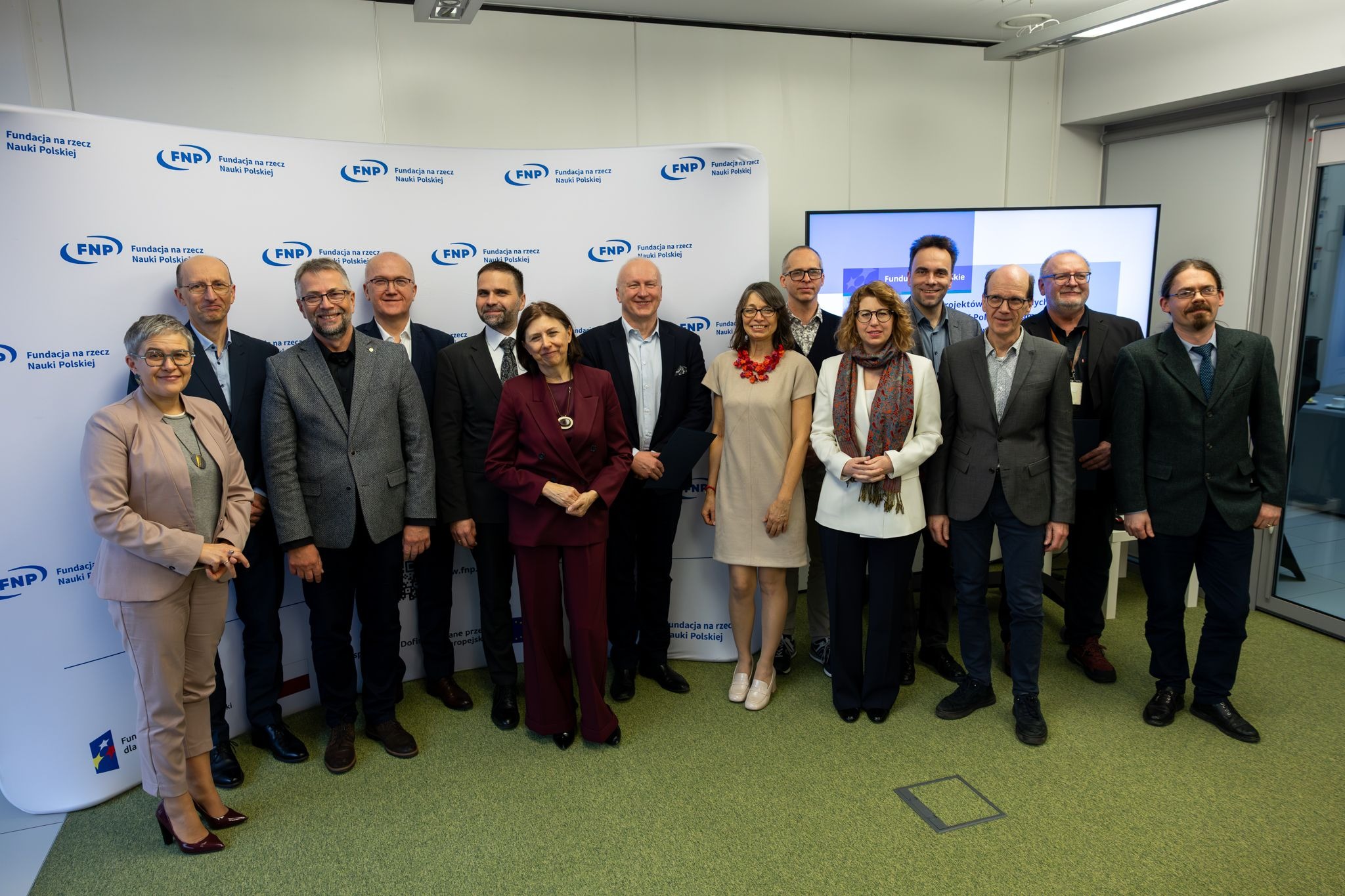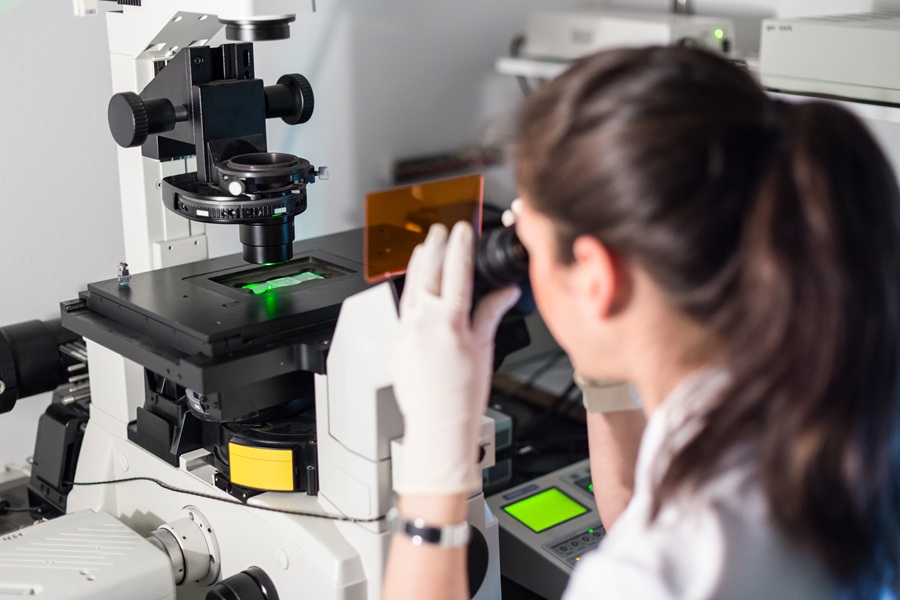The MINIATURA competition, organized by the National Science Centre, is a program aimed at researchers at an early stage of their careers. It represents a first step toward scientific independence and applying for larger national or international grants. In the latest edition of the competition, the research of Dr. Daria Hajka from the Mechanisms of Neurodegeneration Group, led by Dr. Agnieszka Krzyżosiak, was recognized and funded. The awarded project is titled “Validation of a novel human research model for ALS in the context of energy metabolism.”
ALS (amyotrophic lateral sclerosis) is a rapidly progressing, incurable neurodegenerative disease that leads to paralysis and death within a few years. The condition is widely associated with Stephen Hawking – the renowned physicist who lived with ALS for decades, making his case highly exceptional. For most patients, the disease progresses much more quickly. Symptoms include muscle weakness, difficulties with speech, swallowing, and breathing. Only 5–10% of ALS cases are genetically based – in the remaining ones, causes are believed to include environmental or stress-related factors.
Dr. Daria Hajka joined Łukasiewicz – PORT at the end of her university studies and has since developed her passion for molecular neurobiology here. She earned her PhD at the University of Wrocław in the Department of Physiology and Molecular Neurobiology. Her research interests center on cellular energy metabolism and the role of mitochondria, which regulate key life processes within the cell.
As part of the grant, Dr. Hajka focuses on an innovative method of directly reprogramming patients’ skin cells (fibroblasts) into motor neurons. This approach preserves the unique cellular characteristics resulting from the patient’s age and disease status. Consequently, researchers can analyze cells “in the moment of disease,” rather than in the epigenetically “reset” state that occurs during classical stem cell reprogramming.
“So far, human models used in ALS research rely on reprogramming induced pluripotent stem cells into neuronal cells. However, stem cells lose the epigenetic background of the donor – as if they were returned to a birth-like state. We are one step ahead: we reprogram neurons directly from patients’ skin cells, retaining their complete genetic and epigenetic context. This allows us to study the patient during the course of the disease,” explains Dr. Hajka.
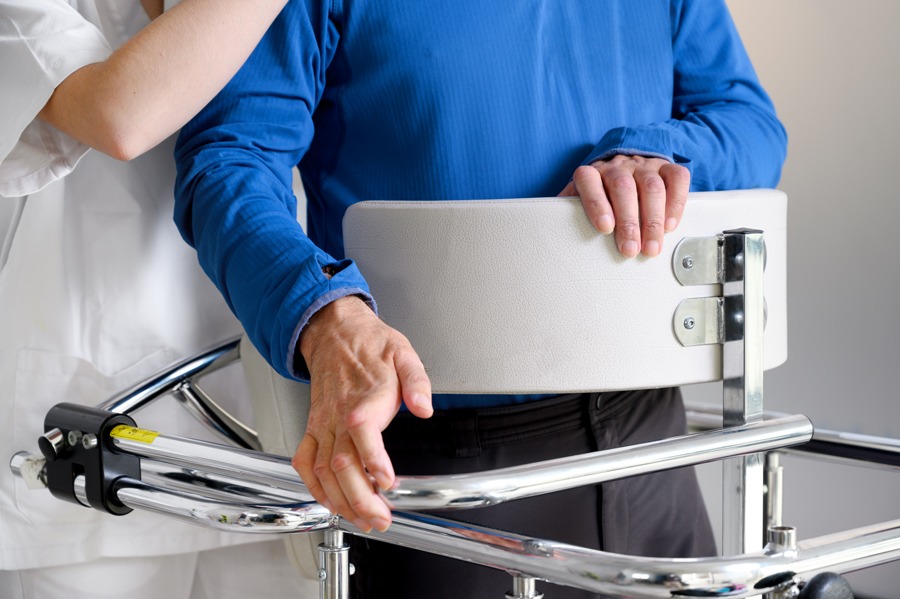
A more realistic ALS model enables the analysis of energy metabolism disturbances in patient-derived neurons. The study uses cells obtained from biobanks such as the Coriell Institute and NINS, but Dr. Hajka hopes to expand cooperation with hospitals in Wrocław. This would enable the team to conduct research not only on ALS, but also on other – including rare – neurodegenerative diseases, which are often linked to mitochondrial dysfunction.
The results of the project may contribute to a better understanding of ALS mechanisms and the development of more effective therapies – not only for this particular condition, but also for other disorders related to impaired neuronal function and disturbed cellular metabolism.
